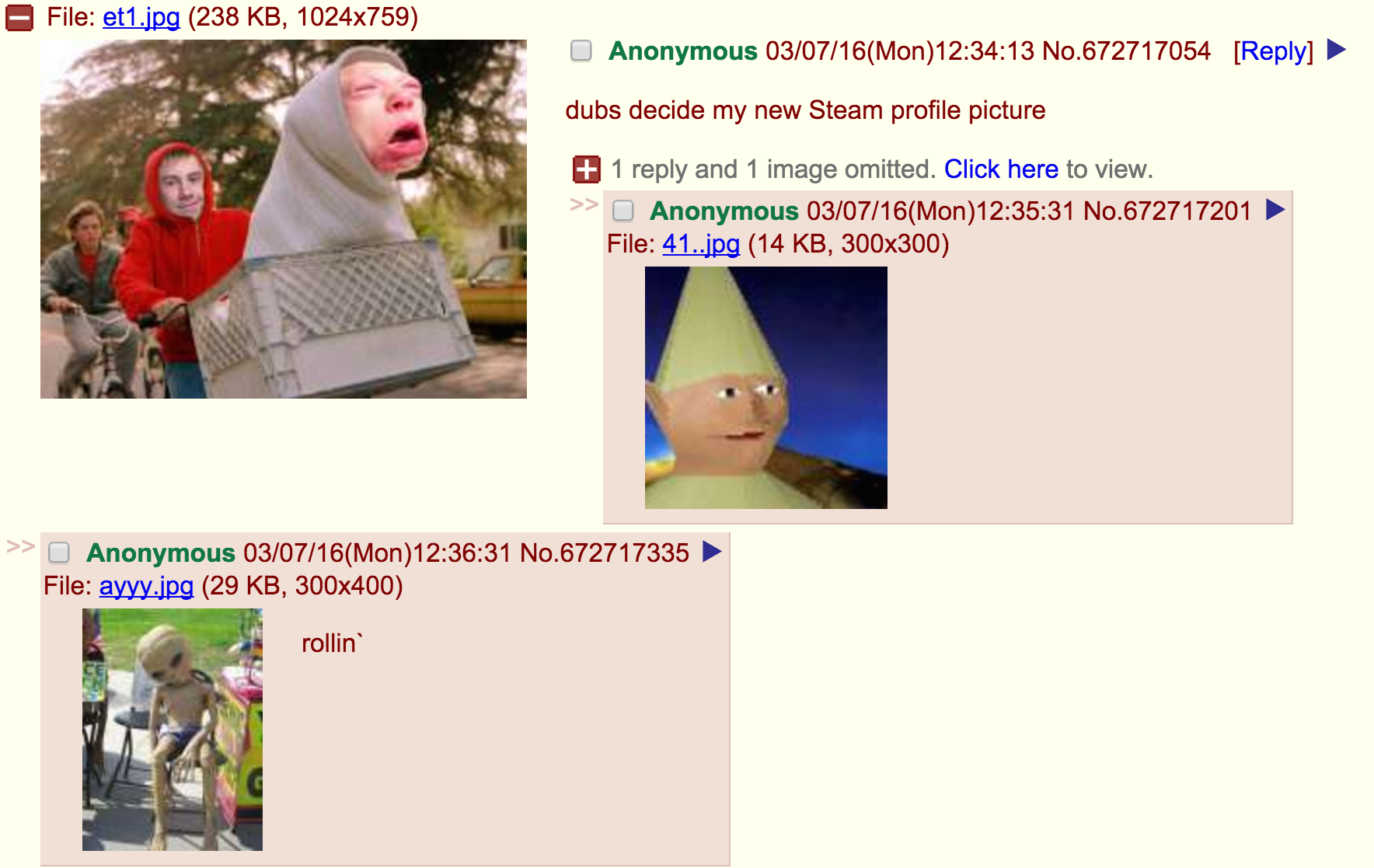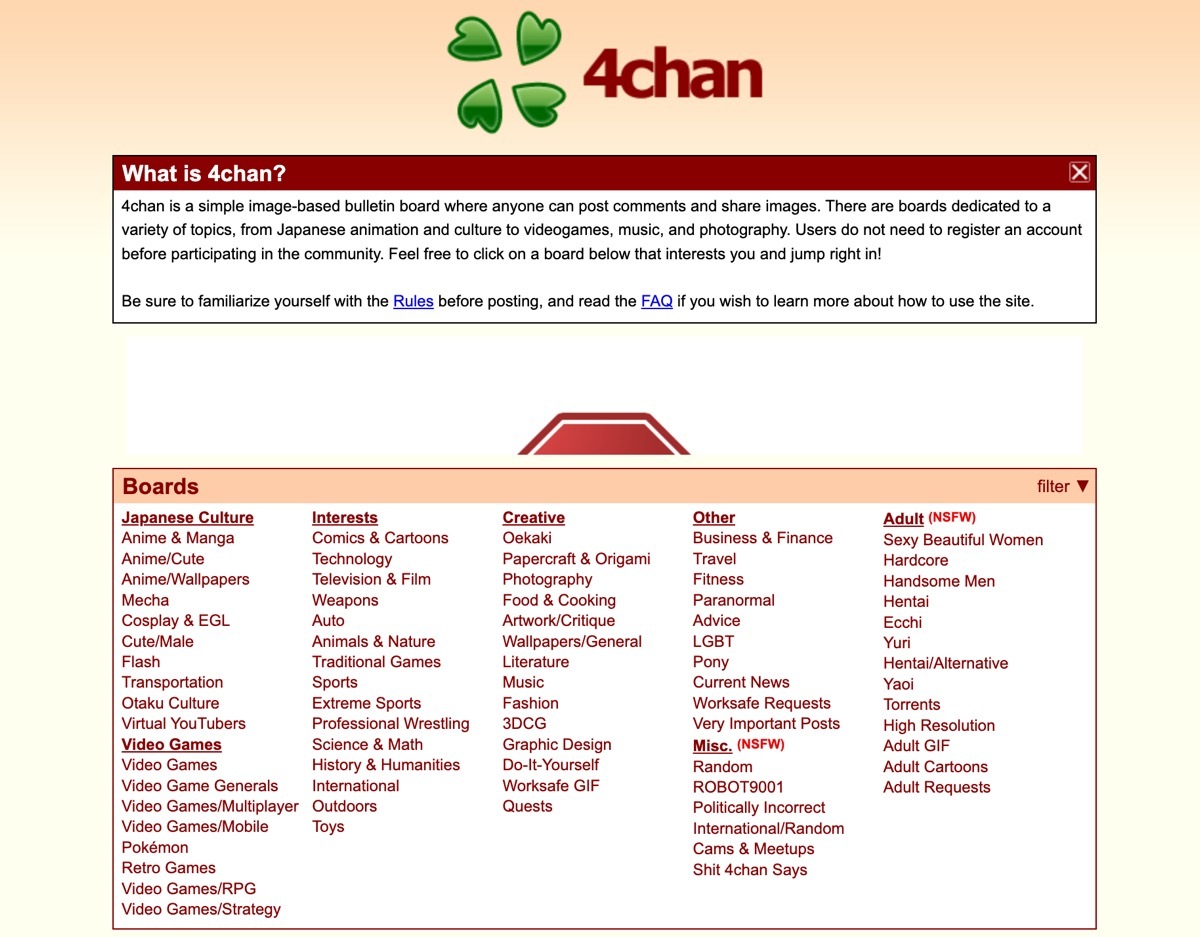4chan Trash: The term itself conjures images of the internet’s darker corners, a chaotic blend of offensive humor, provocative imagery, and often disturbing content. But what exactly constitutes “4chan trash,” and how has it shaped online culture? This exploration delves into the nuanced definition of this term, tracing its origins, analyzing its impact, and examining the ethical considerations surrounding its creation, consumption, and dissemination.
We will explore the historical context of its emergence on 4chan, the role of anonymity in its proliferation, and the key events that contributed to its widespread use. Furthermore, we’ll examine the impact of this content on online discourse and public perception, comparing its effects with other forms of online negativity and considering the potential psychological consequences of exposure.
Finally, we will address the challenges of moderation and the ethical responsibilities of individuals, platforms, and communities in navigating this complex digital landscape.
Impact and Consequences of “4chan Trash”
The term “4chan trash” broadly refers to the often offensive, hateful, and harmful content generated and disseminated on the anonymous imageboard 4chan. Its impact extends beyond the site itself, significantly influencing online discourse and shaping public perception of internet culture. Understanding the consequences of this type of content is crucial for mitigating its negative effects and fostering a healthier online environment.
Impact on Online Discourse and Public Perception
“4chan trash” contributes to the normalization of harmful online behavior. The anonymity afforded by 4chan emboldens users to engage in activities they might otherwise avoid, leading to the spread of misinformation, hate speech, harassment, and doxxing. This, in turn, degrades the quality of online discussions, creating echo chambers of negativity and discouraging constructive dialogue. The pervasive nature of this content also influences public perception of the internet, often associating it with toxicity and negativity.
This perception can lead to decreased online engagement and a reluctance to participate in online communities. Furthermore, the tactics and strategies employed on 4chan, such as coordinated trolling campaigns, have been replicated on other platforms, further exacerbating the problem.
Comparison with Other Forms of Online Negativity, 4chan trash
While “4chan trash” shares similarities with other forms of online negativity, such as cyberbullying and online harassment, its scale and organization often distinguish it. Unlike isolated incidents of negativity, 4chan’s decentralized structure allows for large-scale coordinated attacks and the rapid dissemination of harmful content. This coordinated nature makes it particularly challenging to moderate and control. Other forms of online negativity may focus on individual targets, whereas “4chan trash” can be more broadly targeted, affecting entire communities or groups of people.
The anonymity inherent in 4chan also sets it apart, making accountability and consequences significantly more difficult to implement.
Potential Psychological Effects of Exposure
Exposure to “4chan trash” can have significant psychological consequences for both consumers and targets. For consumers, constant exposure to hateful and violent content can lead to desensitization, increased anxiety, depression, and even the normalization of harmful behaviors. The constant barrage of negativity can contribute to a cynical worldview and a decreased sense of empathy. For targets of harassment and doxxing, the effects can be far more severe, ranging from emotional distress and anxiety to physical harm and even suicidal ideation.
The anonymity of the perpetrators exacerbates these effects, leaving victims feeling powerless and vulnerable.
Consequences of Consuming and Sharing “4chan Trash”
| Consequence | Description | Example | Impact |
|---|---|---|---|
| Spread of Misinformation | False or misleading information is rapidly disseminated, impacting public opinion and potentially causing real-world harm. | The spread of conspiracy theories and false narratives about political events. | Erosion of trust in institutions, social unrest. |
| Online Harassment and Bullying | Individuals and groups are targeted with abusive and threatening messages, leading to emotional distress and potential legal consequences. | DoXing, targeted harassment campaigns against specific individuals or communities. | Psychological harm, social isolation, legal repercussions. |
| Normalization of Hate Speech | Exposure to hateful and discriminatory language can desensitize individuals and contribute to the acceptance of prejudice. | The proliferation of racist, sexist, and homophobic content. | Increased societal intolerance, discrimination, and violence. |
| Damage to Online Reputation | Individuals and organizations can be targeted with smear campaigns, damaging their credibility and online presence. | False accusations and damaging leaks spread through coordinated online campaigns. | Loss of business, social stigma, professional setbacks. |
Artistic and Cultural Interpretations

The often-derogatory term “4chan trash” paradoxically holds a unique position within contemporary internet culture. Its inherent ambiguity, born from the chaotic and often offensive content of the anonymous imageboard 4chan, allows for diverse artistic and cultural interpretations, ranging from outright rejection to ironic appropriation and even a form of counter-cultural expression. This section will explore these varied interpretations, demonstrating the multifaceted nature of this seemingly simple phrase.
Appropriation and Recontextualization in Art and Culture
The raw, unfiltered nature of 4chan’s content has, surprisingly, become a source of inspiration for some artists. The chaotic visual language, the memes, and the often-absurdist humor have been incorporated into various art forms. For example, some digital artists have directly sampled images and memes from 4chan, recontextualizing them within a fine art framework, exploring themes of anonymity, internet culture, and the ephemerality of online content.
This approach often involves a deliberate juxtaposition of the crude, low-resolution imagery with sophisticated artistic techniques, highlighting the contrast between the source material and the refined presentation. Similarly, some musicians have sampled audio clips from 4chan threads, incorporating them into their compositions as a commentary on internet culture and the soundscape of the digital age.
Examples of Ironic and Satirical Usage
The term “4chan trash” is frequently used ironically or satirically, particularly within online communities familiar with 4chan’s culture. This ironic usage often serves as a self-deprecating label, acknowledging the sometimes-offensive and chaotic nature of the site while simultaneously celebrating its unique and rebellious spirit. Memes and other online content frequently use the term in a playful, self-aware manner, highlighting the absurdity of the online environment.
For instance, an image of a seemingly mundane object might be captioned with “4chan trash,” highlighting the incongruity and subverting expectations. This use often functions as a form of in-group humor, solidifying a sense of shared identity and understanding among those familiar with the context.
4chan Trash as Counter-Culture Expression
The association of “4chan trash” with counter-culture expression stems from its rejection of mainstream norms and values. 4chan, as a platform, often acts as a breeding ground for subversive ideas and unconventional expressions. The anonymity afforded by the platform allows users to freely explore controversial topics and challenge established social conventions without fear of direct reprisal. The resulting content, even if considered offensive by many, can be viewed as a form of rebellion against societal expectations and a rejection of sanitized, mainstream culture.
This perspective frames “4chan trash” not as mere waste, but as a raw, unfiltered manifestation of counter-cultural sentiments.
Scenarios Illustrating Artistic Interpretations
A series of hypothetical scenarios can illuminate the diverse artistic interpretations of “4chan trash.” First, imagine a gallery installation featuring a large-scale projection of rapidly scrolling 4chan threads, accompanied by a dissonant soundscape created from sampled audio clips from the site. This piece would aim to overwhelm the viewer with the sheer volume and chaotic nature of the online environment, forcing a confrontation with the raw energy of 4chan culture.
Secondly, consider a performance art piece where an artist meticulously recreates a famous 4chan meme using only recycled materials, highlighting the ephemeral and often disposable nature of online content. Finally, imagine a series of paintings where iconic 4chan imagery is rendered in a hyperrealistic style, creating a jarring contrast between the crude source material and the refined artistic execution.
These scenarios demonstrate the potential for “4chan trash” to be transformed into meaningful artistic statements.
Ultimately, understanding “4chan trash” requires a multifaceted approach. It’s not simply a collection of offensive images and text; it’s a reflection of broader societal issues, technological advancements, and the evolving nature of online interaction. While the term itself carries negative connotations, exploring its origins, impact, and artistic interpretations provides valuable insight into the complex dynamics of online culture and the challenges of navigating the digital world responsibly.
This exploration has highlighted the need for critical engagement with online content, responsible moderation strategies, and a heightened awareness of the ethical implications of both creating and consuming such material.



